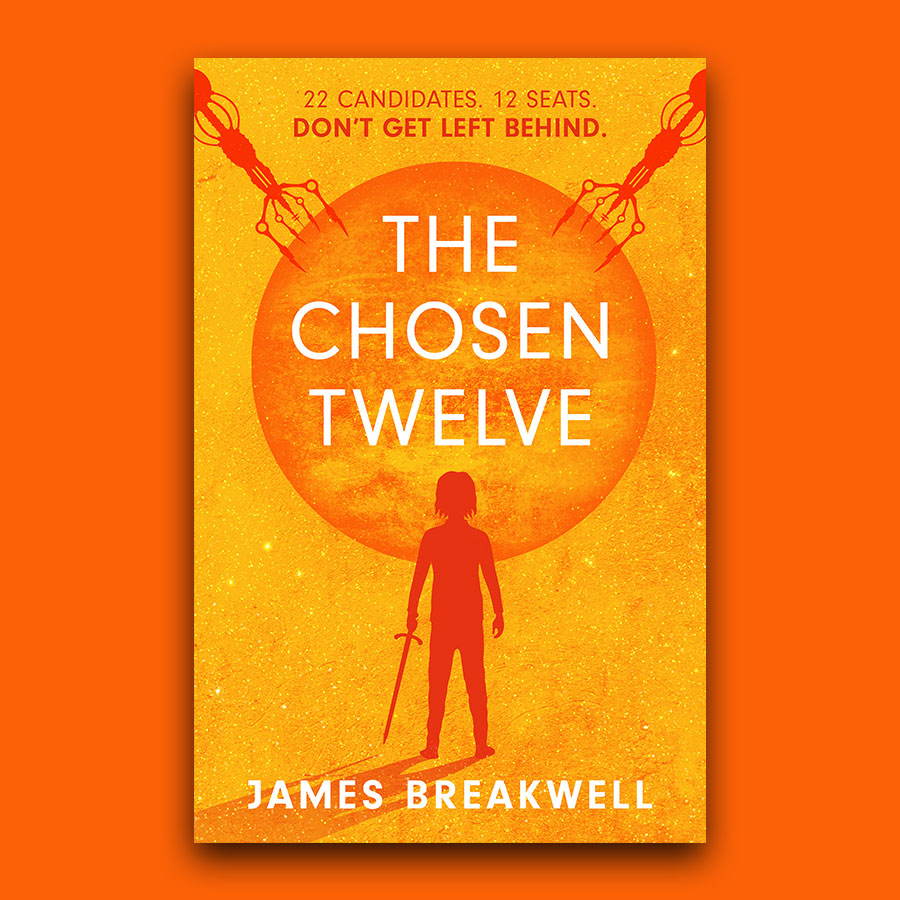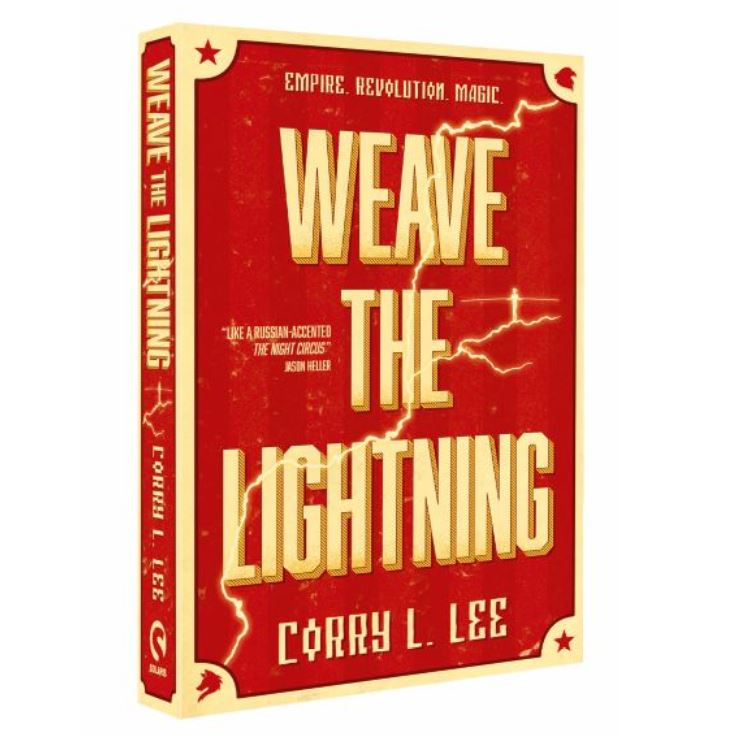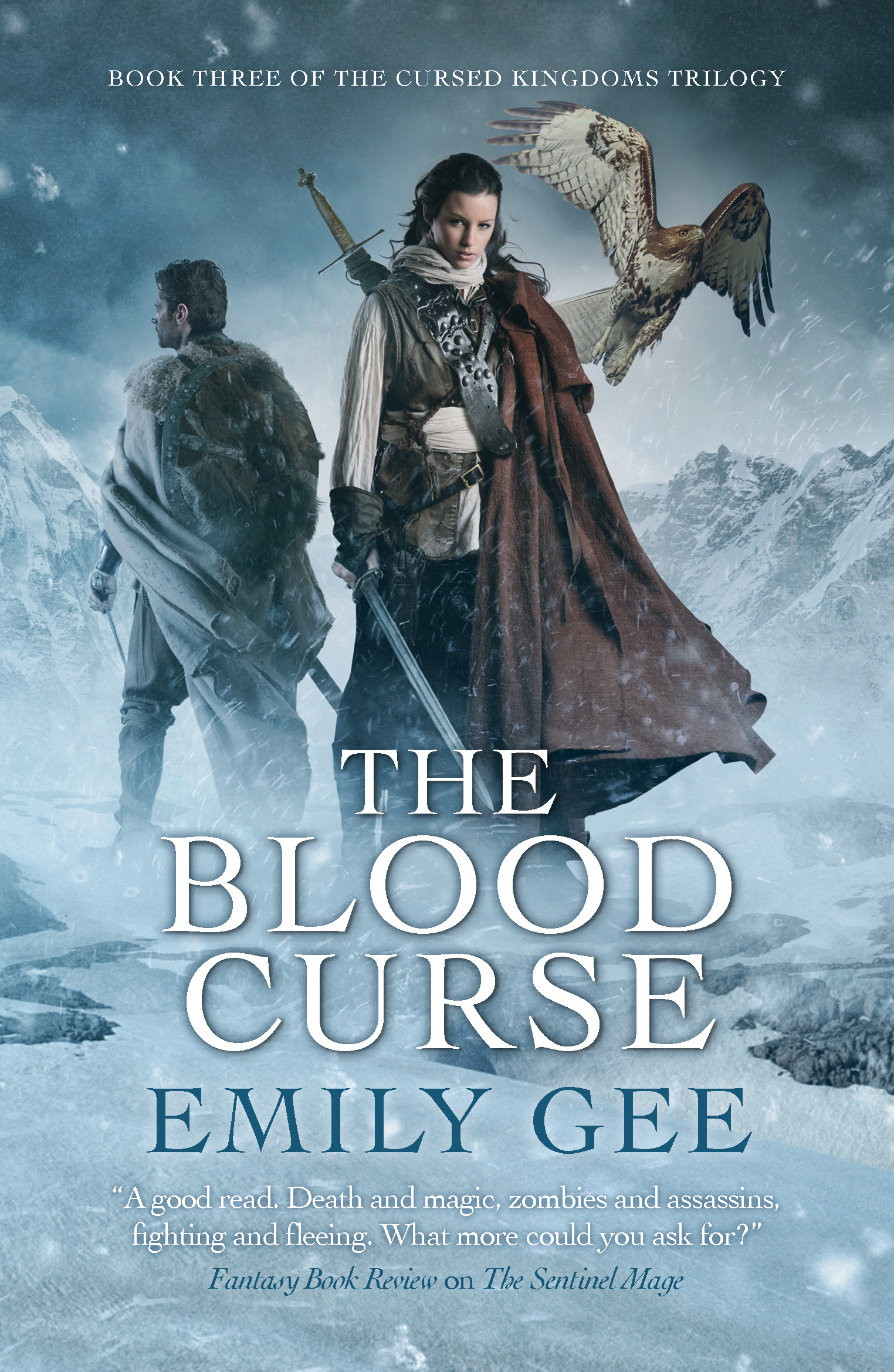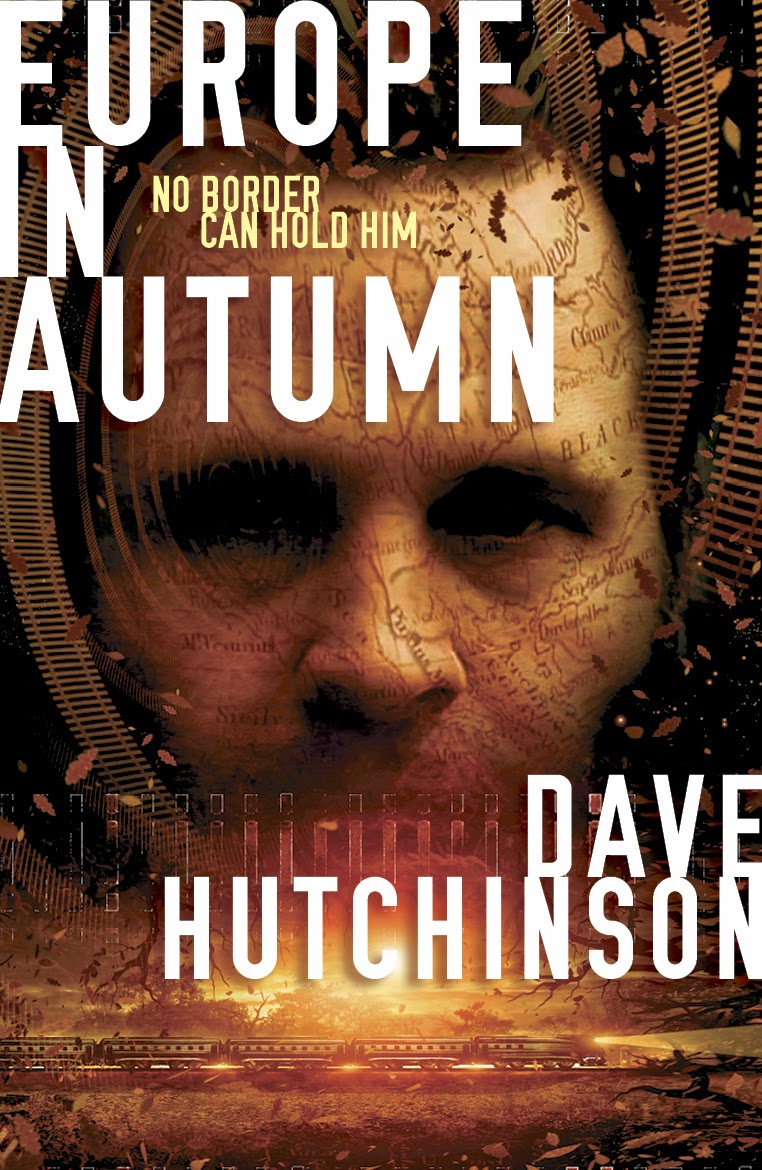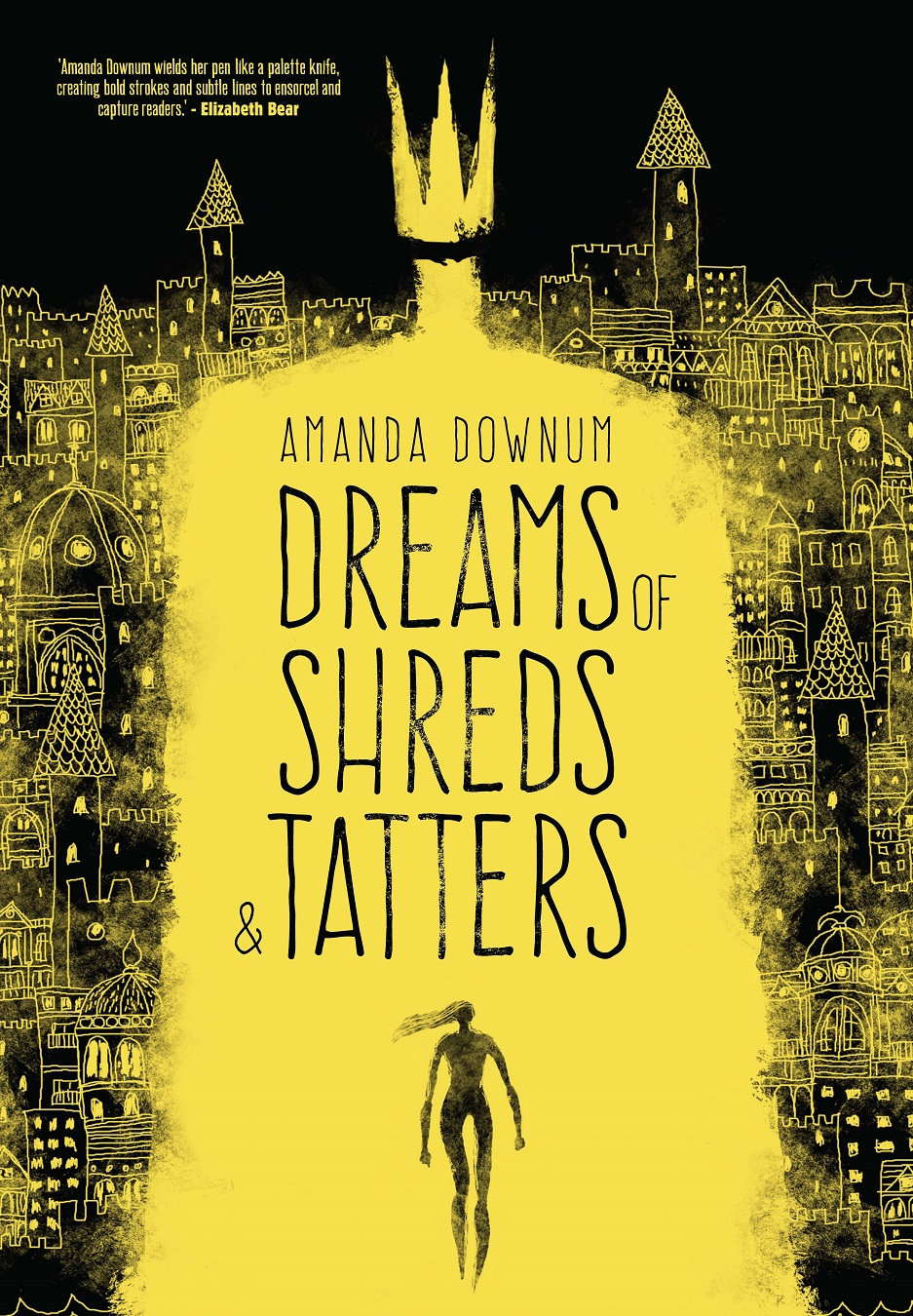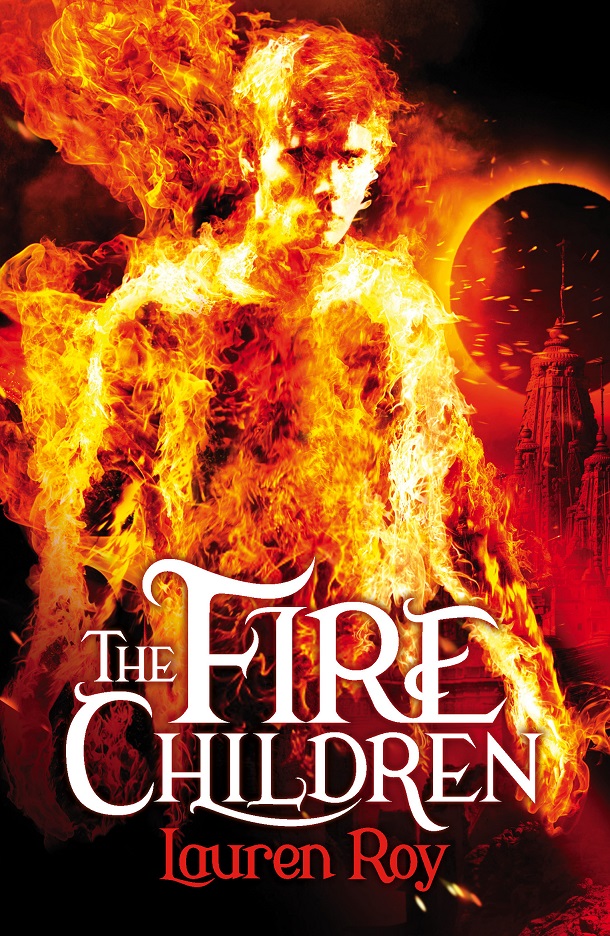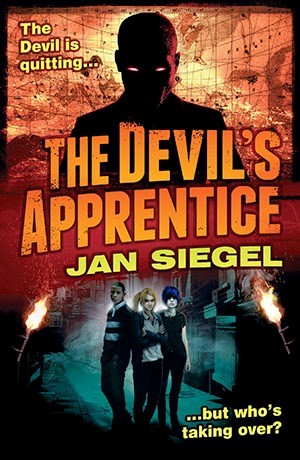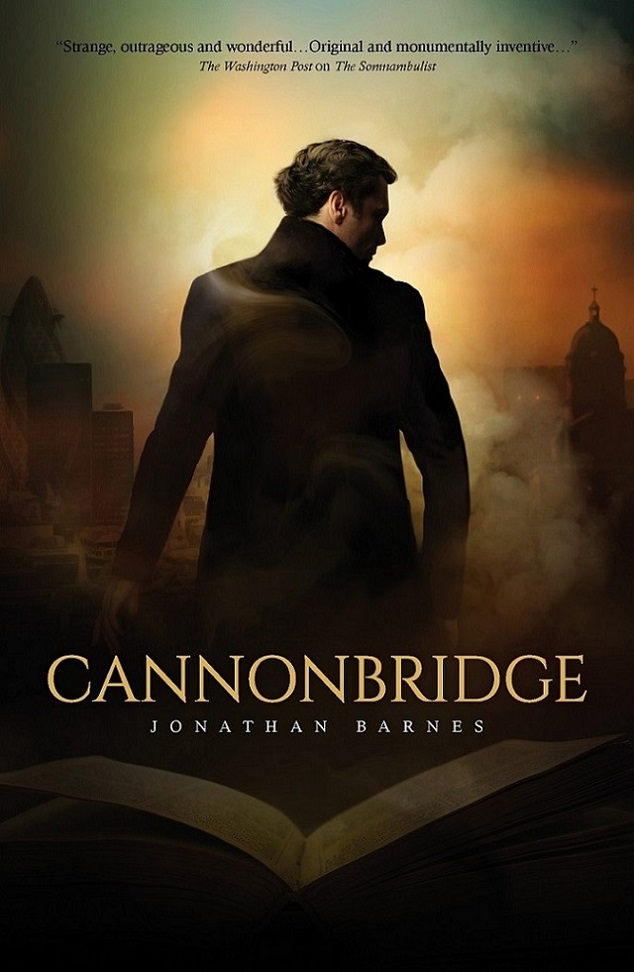
Cannonbridge
By Jonathan Barnes
Order: UK | US
“Forgive me, my dear Colonel,” said Miss Jewell with that species of sportive wit and provoking vivacity with which she had won her place in the affections and ambitions of every officer in the barracks, “but is not all life a mystery? Is not our very existence an enigma which we cannot hope to comprehend in full until that inevitable moment when our mortal days are ended?”
Plenitude by Matthew Cannonbridge (1842)
Eliphar, thou art intended as a sacrificial thing,
Created to toil and to serve
And never once to question your enslavement.
The Lamentation of Eliphar, Mununzar’s Son by Matthew Cannonbridge (1860)
The lease of Man is temporary and transient. There were terrible wonders before him. We may be sure that there shall be so again in the years to follow his superseding.
The Seasons of Sorrow by Matthew Cannonbridge (1875)
1816
The Villa Diodati
Geneva
Outside are storm clouds, rain and the gathering dark. Indoors are a company of five who, tired of other pastimes, of opiates and sex and wild transgression, have turned their attention instead to the telling of tales. Tonight, they talk of ghost stories.
Their leader, a slim, clubfooted man, is to be found, with the rest of them, in one of the villa’s many rooms to have been devoted to pleasure, stretching pantherishly out upon a scarlet divan. Beside him is a pale, dark-haired girl who speaks but rarely and who gazes up at her companion with a dangerous obedience in her eyes.
Another couple is present, though they seem, perhaps, more evenly matched: a languid, dissipated man with a wave of curling brown hair, and his young lover, a girl of not more than eighteen, whose demeanour—shifting, watchful intelligence—seems to speak of the woman that she shall become. The last of this quintet is a plump, oily-skinned physician whose full, almost feminine lips quiver whenever (and he does this often) he pays cringing homage to their host.
Rain clatters upon the windowpane. In the distance, moving closer: the sound of a tempest, the mournful timpani of thunder. It is, of course, the man with the clubfoot who begins.
“Now then…” His manner is unembarrassed in its languorous theatricality. “Which of you has given thought to our challenge?”
He smiles a smile which, whilst fascinating and a thing that has enraptured many, is not a very pleasant smile nor one that evinces any warmth. It is not a smile that you would care to see were you, say, alone in his presence late at night or if he were to wake you in the early hours of the morning, a candle held in an outstretched hand, illuminating fitfully the cruel lineaments of his face.
No one answers. The girl beside him moves closer, nestling her soft, compact frame against his body. She breathes in his scent, half-sighing, half-shuddering, her expression, of giddy adoration, one which he seems scarcely even to notice.
“Percy?” he asks, already impatient.
The brown-haired fellow looks up. “Oh, yes. I fear I have not a notion. You must understand that I am more accustomed to the particularities of poetry than I am to those of prose.”
From their host—a snort of weary disapproval. “Then you should play the game more fully. At least if you wish to remain our guest.”
The poet looks uncertain at the slight, not quite knowing how to respond, wary of angering the clubfooted man. A second’s hesitation, then a feudal lowering of his gaze, a bowing as buck yields to stag.
The clubfooted man purses his lips and arches an eyebrow. “Who else, pray? Who has some less disappointing reply?”
“I… I believe I have a story, my lord.” This is the plump young doctor, the blood rushing to his fleshy cheeks, a sheen of sweat upon his forehead.
The face of the clubfooted man is a mask of haughty scepticism. “Dr Polidori?” His eyes flicker over to the other guests seeking to forge some conspiracy between them. “Indeed? You must tell us more, my dear.” Disdain in every syllable. Contempt in every word.
“My lord, I have been busying myself with the invention of a tale of the un-dead.”
The man whom the doctor has called “my lord” seems, despite himself, to be quietly intrigued. “That does sound of some small interest. You may continue.”
The physician swallows, perspires, wipes his upper lip. “I have in mind, my lord, a most beguiling nobleman…”
At this, the rest of the company exchange glances of dark amusement.
“Now, at first, when we, the reader, first encounter him, he seems quite human, does my aristocrat, my Lord Ruthven, but he is… not as other men. He…”
“Yes?” Taken by the physician’s story, Percy, the young poet leans forwards, while the woman beside him still seems far away, thinking of other things.
The rain beats more insistently upon the window. Thunder is heard again, louder than before. The storm approaches.
“My friends, this great man of mine is not, in truth, a man at all. Rather, he is a fiend… a drainer of blood… A vampire!”
Shrieks and cries of mock terror and delight.
Plump Polidori, now warming to his theme: “He pulls in men—and women also—with the irresistible force of his character, with his glamour, his romance. They all admire him. They all seek his company. Yet he has in mind for them just one thing—to drain them of their blood! He cannot know mercy. He is quite implacable. He is grown fat upon the nectar of his victims. And he lusts, he lusts for—”
“Yes, yes. Thank you, doctor. We also have had our fill now, I think.”
Polidori attempts to continue but his interjection is waved peremptorily aside.
“Later,” the lord hisses. Then, to the rest: “Has anyone conceived of some less lumpen tale? I asked for something to chill me—not for some absurd farrago fit only for the lowest fleapit of the East End.”
Dr Polidori, crestfallen, if unsurprised, says nothing though he blinks too hard and too fiercely. There is a bottle beside him and a glass and it is with the decanting of the one into the other that he now occupies himself.
“My lord?” The watchful young woman is speaking—courteous, firm, wholly unafraid.
The host turns towards her, his manner coldly indulgent but also an unexpected wariness. “Mary?”
“My lord?”
“And what have you dreamed for us?”
“I think you are correct, my lord, when you ask me what it is that I have dreamed for my story came to me at night, unbidden and in my sleep and as a kind of phantasy…” For a moment after speaking, the woman seems lost in thought.
“Quite wonderful. But you must go on, my dear.”
“It concerns a man who, although he longs to be human, can never truly be so.”
“And how can that be?”
“Because he has been built by man. He is, you understand, a… thing of artifice. He is created by dark arts in defiance of the laws of God. Stitched and darned by some doomed scholar, imbued with a grotesque mockery of life and set to wander blindly and with murderous intent throughout the world.”
The clubfooted man draws in a long, slow breath. “Dear lady, you astound us. I think I can go so far as to say that your story may even have some trifling possibilities.”
“Mary?” Her lover is looking at the lady somewhat strangely as if she has not spoken to him of these peculiar fancies before this moment.
“What is the name of this poor creature?” asks the lord.
The storm is ready to break. The rain drums still harder on the windowpanes. There is thunder once again, almost upon them, every peal of it fiercer and more terrible than anything that has come before.
“He has no name. His creator denies him even that.”
“The creator, then? What of he? What is this rash Prometheus called?”
“I know not from whence it came but I do believe him to be named—”
Before she can complete her sentence three loud knocks are heard—quite distinctly—upon the outer door.
At the sound of it, they all—even the lord—feel a spasm of intense disquiet. For a moment, nobody speaks. There are only the noises of precipitation, the feral growling of the storm.
It comes again—three further knocks.
The young woman who has, until now, stayed quite silent, clings to the lord’s shoulder. As is not uncommon with her, hysteria seethes and bubbles in her voice. “Who is that, my love? Who is it who calls upon us?”
But the host’s equilibrium is recovered swiftly. He shushes his pet. “Hush, my darling. It is someone from the village. That is all. Some beggarman or wayfarer. I shall see them off.”
Pushing away the girl as though she were of no more account to him than the lowest animal, he stands briskly upright. “I shall see who calls upon us.”
The girl again, wide-eyed and tremulous: “My lord, I fear for you. You ought not to go alone.”
“You think not? Yet surely it is not for me but our uninvited guest for whom you should feel fear? Still, I shall take another. If one of you wishes to accompany me.”
No volunteer presents themselves.
Then, once again and for the final time, three knocks echo through the house.
“Don’t be a goose,” says the other woman, the tale-teller, stepping adroitly to her feet and striding towards the door. “Come, my lord, let us welcome our unexpected visitor.” And she walks so firmly from the room that the man with the clubfoot has to struggle to keep pace with her.
The doctor, Polidori, calls out behind them: “Be careful, my dears. Be careful!”
Percy says nothing but only, troubled, watches the woman go.
Through the villa they stride, Mary and the lord—along corridors draped with ancient tapestries, upon stone floors which ring out accusingly at the sound of their footsteps, through many strange and singular rooms born of dark beauty and misspent wealth and ingenious perversity. Their conversation is sporadic and freighted with anxiety. As they pass from space to space, the sounds of the storm intensify.
“You seem ill at ease,” remarks the clubfooted man as they pass a large, elaborate mural, filled with pictures of cherubs and nymphs, a line of athletic centaurs, the races intertwined in the most remarkable and inventive ways.
“I am curious as to the identity of our caller. Do you not share my sentiment?”
“I do. Yet you seemed to me to be ill at ease long before.”
“Perhaps, my lord. I am unsettled.”
“Your step-sister, perhaps? Her behaviour irks you? You are jealous of her privileges?”
“Her choices are her own. I have no dominion over her.”
“Yet I assuredly do. And that irks you?”
“Not at all, my lord. In so many ways, the two of you strike me as a most excellent match.”
They move through a place which seems to have been given over to the theatre—a small, abandoned stage, a flock of costumes, stacks of manuscripts and ancient books, the text of an unorthodox and even a scandalous kind. Outside, rages the thunder and the rain.
“Tell me,” he urges. “What troubles you? Was it something about our game?”
“In that you may be right, my lord.”
“Indeed?”
“I simply believe that the telling of tales should not be a game.”
“You understand that I meant only to provide us with a little amusement?”
“Yes. But then all the world is a joke to you.”
The lord gives no sign that he disagrees with her judgement. “Do you not believe it to be so?”
“I can see how you might form such an opinion.”
“You choose your words with care, I think. Extrapolate.”
They walk through the theatre, into a library, an antechamber and out into the main corridor of the house. In the distance: the outer door, heavy and fortified.
The woman’s words are hurried, as though the swift speaking of them may serve to hide their meaning. “Your position, my lord. Your power. And, above all, your money. These things protect you from the truth of the world.”
The man does not reply but merely steps rather clumsily onwards, as though concentrating now to the exclusion of all else, upon the feat of forward motion.
At last, they reach the door. Although they have heard no further knocks—and for all that they know the visitor may have departed—both can sense the presence of something that does not truly belong on the other side, something waiting which ought not to be there at all. As they open the house to the storm, the woman and the lord dare not look at one another.
Outside, drenched and framed by the glowering sky, his arrival heralded by another clap of thunder, stands a stranger. Black-clad, dark-haired, his face lean and intelligent, his eyes a penetrating shade of blue, he seems almost to have been brought to this place by the storm itself. Although kindly in his manner there is even now, even at this, the earliest of all known phases, something about him—some dormancy, some potential—which makes the couple step, instinctively, half a pace backwards.
In spite of the tempest, the stranger smiles. “I was expecting servants.”
“The servants have fled, sir. Appalled, they said, at our depravity.”
The stranger’s smile does not falter. “You must be Lord Byron.”
The object of this observation nods crisply.
“And you—oh, I know your name. You are Mary.”
“Do I know you, sir?”
“Not yet, I fear. And I hope that you’ll forgive me for arriving unannounced and without an introduction.”
“What do you want?” asks the lord.
“Only shelter. For tonight. Nothing more. Shelter from the storm. And perhaps a little company. I can recompense you handsomely for both.”
“I have no need of money.”
“I did not speak of money.”
“No?”
“I have heard (I cannot at present recollect where or from whom) that tonight you tell tales. Stories meant to curdle the blood and to quicken the beatings of the heart.”
Byron inclines his head. If he is surprised, he takes pains not to disclose it. “That is so.”
“Then I’ve come to help. To contribute if I can.”
“Indeed?”
“As chance would have it, I know just such a story—the most terrible, and I would warrant, the most chilling of them all.”
He smiles again and this time neither of them can resist the force of it.
Deafening thunder. Torrential rain.
The stranger, soaked yet resolute: “My lord, the storm is quite unrelenting.”
“Then come in,” says Byron and how odd it is, how very odd, to hear that curious note of deference in his voice. “And be right welcome.”
“Forgive me,” says the girl, “but I did not hear your name.”
“I did not give it.” The stranger glances behind him, somewhat nervous all of a sudden, as though he suspects himself to have been followed, as though some shadow dogs him. But, almost at once, uncertainty fades and the smile comes again. “My name is Cannonbridge. It is Matthew Cannonbridge.”
“Then pray come in, Mr Cannonbridge.”
And the dark-haired man, invited, steps inside.
For a long time to come, Mary will tell herself that it was all coincidence—how lightning struck close by at the very moment when the stranger crossed the threshold, how in that instant she should herself have felt a tremor in her heart as if she were suddenly unwell and how (and this, she will tell herself over and over, must surely have been her imagination) she seemed to hear, quite distinctly, though she knows it to be impossible, the infant having died some fifteen months beforehand, the desperate, mournful weeping of her child.
Now
Two hundred years later—give or take a couple of months—and the mind of Dr Toby Judd is also filled with thoughts of Matthew Cannonbridge.
Judd is standing in the furthermost carriage of the 18:12 from Waterloo, coming home from a day of prickly meetings and academic brouhaha at the premises of his employer, the University of Draye. The train is full—more than full—and its passengers are sour and restive. No seat, of course, for Toby. He’s standing up with a dozen others, squashed against the windowpane, wedged uncomfortably between a pot-bellied man in a suit who holds a paper bag of McDonalds (from which he pulls item after item—nuggets, French fries, beef patty, onion rings) and a slab-faced woman in late middle age who has a mobile phone clamped to her right ear and into which she is bellowing orders of baffling specificity.
Toby is a small man—just over five feet, slim, bespectacled, unassuming—and, in this instance, he resembles a shrimp between two sea beasts. He holds out before him, angled awkwardly against the glass, a tubby paperback, the cover of which proclaims its title to be Cannonbridge: A Celebration of English Genius. It is illustrated by a reproduction of an etching—that famous, saturnine profile—and, affixed to the slick card is a round red sticker which reads ‘Matthew Cannonbridge: WINNER of the Waterstones Poll to find the Nation’s FAVOURITE Writer’.
Its back cover is taken up by a sepia photograph of the author of the piece: an intense, hawkish-looking man, not more than forty and in possession of enviable cheekbones. His smile reveals suspiciously perfect teeth and his name (printed on back, front and spine) is Dr J J Salazar—also, as it happens, a Draye employee, albeit of a starrier kind than Dr Judd.
Toby has just reached the end of a rather lurid chapter concerning the earliest known Cannonbridge sighting—by the shores of Lake Geneva and in distinguished company, the first recorded appearance in history of that extraordinary man—when a slip of paper flutters from between the pages and glides towards the ground. He bends over to retrieve it, an action which seems to cause the goliaths on either side of him to recognise his presence for the first time. The woman interpolates a single “tsk” into her stream of recondite commands, whilst the man, slowing his ingestion momentarily, glances down at his smaller fellow traveller and stifles, almost wholly unsuccessfully, a belch.
The paper, in Toby’s hands again, turns out to be mere publicity material—something to do with the Cannonbridge Gala, due in eight weeks and set to represent the acme of the nation’s bicentennial celebrations. Scrumpling up the flier, Toby slides it into the pocket of his jacket (his favourite, made of blue cord and better suited, after fifteen years of almost daily use, to the undiscerning charity shop, the fabric reclamation centre). As he straightens, he glimpses the almost-empty first-class carriage beyond and sees there, in one of those coincidences which, although not uncommon in life would be dismissed out of hand in fiction, sitting in an aisle seat, his legs stretched out before him with lordly indifference, Dr J J Salazar.
Salazar holds in one hand not a book but a sleek, black tablet from which he is reading. Whatever these words may be, they cause a flicker of ironical amusement to play about his lips. Alerted by some sixth sense, the author turns and catches sight of Toby. That smile intensifies. He waves. Toby considers pretending not to have seen him but, deciding that it’s probably too late now for that particular gambit, attempts to wave back. His arms are constricted and he ends up succeeding only in jostling the giant flask of cola from which his neighbour is slurping, an action which earns Toby another look of furious disapproval.
Salazar, witnessing all of this from the security of his first-class booth, nods once and smiles, affecting the kind of expression with which he favours certain of his students—an adult tolerance of the gaucherie of youth. Toby looks down at his book, remembering too late just what it is that he is reading. But Salazar has already seen and at the sight of his own face gazing back at him, his smile (or so it seems to Toby) grows broader still. Those remarkable teeth (almost American!) gleam and shimmer in the early evening light.
What little appetite he had for the book now having dissipated, Toby passes the rest of the journey by gazing out of his little patch of window. The train passes at speed through the cat’s cradle of Clapham Junction, after which the sprawl of the city—its black, concrete complexity—begins to recede and the suburbs start to impinge. Through Earlsfield, Wimbledon, New Malden, Surbiton and on towards Ashbury, the excesses of London, her grime and savage energy, are overtaken by the apparent placidity of her outlying districts—by quiet and patient streets, by the increasing preponderance of green spaces. Not quite the city nor yet the country either, the train passes into those liminal, well-mannered states which thrive discreetly at the borders of metropolises.
Eventually, it pulls into its first stop. Toby has never ridden on the service for any longer—it ends up, he believes, in Portsmouth and sometimes he imagines what it would be like to stay on board the train until that terminus, picturing cool, invigorating, salty air, the shriek of seabirds, the distant honking of ferries and liners, chips by the seafront, bracing afternoon walks beside the ocean. But today, like every other day, he does not wait to find out. The doors open with a whoosh which, had the train been human, might have sounded like relief.
Judd and his companions step out onto the concourse. The big man, having finished his sack of fast food, stares mournfully into its depths as if in the hope of spying some neglected crumb, while the woman strides swiftly away, the stream of orders now overtaken by a catechism of what sound like expressions of endearment and assurances of affection. Whether the interlocutor is the same as before, Toby cannot say.
There is the usual, urgent rush towards the stairs which lead out of the station and Toby lets himself be caught up in the flood, succumbing to the seductive momentum of the crowd. He is swept along with the herd of his fellow commuters, down the platform, up the stairs and out the station exit, towards the cab rank and the car park and the high street beyond.
Free of the mob, pausing for breath, Toby notices with surprise, that J J Salazar has also alighted from the train, here, in Ashbury, in Toby’s town, where he can surely have no proper business. Salazar is waiting halfway along the line for taxis, his face set in an expression of good sportsmanship, like a movie star trying out self-deprecation on a talk show or a politician at the kind of photocall which involves some slight risk of appearing foolish but which his people have assured him will make him seem approachable and everyday.
Toby considers passing by without speaking but, his curiosity getting the better of him, he walks over to the author and taps him on the shoulder, a part of the other man’s anatomy which is, approximately, level to his own head.
“J J?”
The tall man turns and smiles, a little vaguely, as if the name of the newcomer might at any moment dart away from his recollection like a salmon in the stream.
“Toby! This is a coincidence.”
“Isn’t it?”
“Good to see you earlier at the University. Sorry we didn’t get a chance to chinwag. There’s always so many people at those meetings and—you understand—one has to prioritise.”
Toby keeps his expression as neutral as he can. “Of course.” He breathes in slowly. “We’ve not seen you for a while. Been enjoying your sabbatical?”
“Sure. Sure, Toby. Yeah. It’s been a lot of hard work. Mostly this gala thing. And all the publicity around the book. God knows why, but it really seems to have caught people’s imagination. Man, but the media have just picked it up and run with it.”
“Well… Congratulations.”
“Cheers. I see you’ve got yourself a copy.”
“I have, yes.”
“That’s cool. Hope you’re not finding it too much of a primer. Of course, it’s meant really for a big, popular audience. Just a nice, lucrative mass-market thing. Though I reckon I’ve unearthed a few tasty new facts. Cannonbridge is one of your own areas of interest, isn’t he?”
“One of them, yes.”
“I’ve not had a chance to read you on him yet, I’m afraid. Well, you know what Cannonbridge studies are like—such a competitive field. I was especially fortunate, of course—what with earning the blessing of the estate and being allowed to riffle at will through that fabulous archive in Edinburgh. As you know, they’re normally pretty strict about who they let in there but… well, I’m just very grateful for such terrific opportunities.”
A taxi arrives, a black cab, its yellow light ablaze. A woman at the head of the queue gets inside and the line shuffles forwards.
“Forgive me for asking…” Toby begins.
“Yeah?”
“What brings you to Ashbury?”
“Visiting a… dear friend. And you?”
“I live here.”
“You do?”
“I do.”
“Well, good for you.” Was that a smirk, Toby wonders? “I mean… why not? Why wouldn’t you want to live in a place like this?”
“I’d better get going. My wife will be waiting.”
“Of course. Yes. I’m sure she will be.”
The two men shake hands. The line moves forward again, Salazar now one space away from his ride. Toby nods farewell. Turning from the station, without looking back, he begins the familiar walk towards home.
There isn’t much to see in Ashbury, little to recommend it to the traveller. A high street, the station, a couple of pubs and as many dusty, echoing churches, a single café, (called, with bourgeois archness ‘The Pantry’), an Italian restaurant run by a couple who’ve never been to Italy and, inevitably, plenty of chain outlets, watching, with crocodile eyes, their dwindling independent rivals. But, mostly, Ashbury is just street after street of neat terraced houses, of still and silent roads, of homes with small, well-tended gardens and clean tarmac drives. All is solemn and uneventful and tame.
It is towards one of these streets—largely indistinguishable from the rest—that Toby trudges as the station recedes behind him. His destination is another nondescript house in another sober avenue: Number Forty-Three, Akerman Road. As the house comes into view, he sees that the lights are on and that his wife is home and at these realisations Dr Judd feels a little upswing in his heart, an understanding of his own good fortune which suddenly renders all the petty irritations of the day of no significance whatever.
Approaching home, in sight of happiness, he is reaching into his pocket for keys when he notices something unexpected and not altogether welcome—a black cab idling, its engine growling, opposite the house. The driver he has not seen before but the passenger is immediately familiar.
Judd stops short and considers crossing over, asking Salazar what it is he thinks he’s doing loitering so close to Toby’s home. But, lacking the requisite energy and figuring, in any case, that to beard a colleague in such a way might come across as overly cranky, he simply walks on by, inclining his head slightly to one side so as to avoid eye contact. Toby’s last thought as he slides the key into the door of Number Forty-Three is that Salazar’s friend must live on Akerman Road, a detail that proves to be oddly disagreeable to him.
He closes the door and calls out. “Hello! Sweetheart!”
“In here.” Caroline sounds nervous and on edge.
Toby strolls through to the house’s tiny sitting room, with its walls lined with books, its ancient sofa and too-big TV, its framed prints, its rugs brought back from inexpensive foreign holidays.
She’s a small woman, Caroline, curvaceous, with dark hair cut into a 1920s bob. She’s dressed as if for an evening in town with a friend she hasn’t seen for ages—a summer dress of dark green, both practical and stylish, showing a little but not too much of her pale, freckled skin. As Toby enters the room, she’s getting to her feet. Beside her, he sees that there is a single suitcase—the one he bought last year after its predecessor had been lost—the bulging contours of which suggest that it has been filled to the very limits of its capacity.
“Hi.” There is a look on her face he’s never seen there before—equal parts guilt, pity and deep, slow-burning anger.
“Are you… going somewhere?”
She lowers her head, not quite a nod yet no denial either. “You must have known… That this has been coming for a while.”
“Known what?”
Pity is uppermost. “Come on, Toby.” Now anger. “Come on. Surely you can figure it out. Why don’t you… Yeah… Why don’t you make one of your famous deductions?”
Toby takes it all in then, perhaps for the first time. He inspects each element: the dress, the look, the bulging suitcase, the man with the cheekbones in the cab outside. He forges connections and fits his theory to the facts—a process which, in other circumstances, he would certainly have found enjoyable—before, in a rush of cognition, he arrives at the only possible conclusion. “I… had no idea.”
A flicker of sorrow before the pity returns. “You must have done.”
“No. No. None. And—”
“Yes?”
Outside, a car horn, loud, mocking and insistent.
“For him? Really? I mean—sweet Jesus!—for Salazar?”
The pleasures of Toby’s life might, until this point, be itemised as follows—literary, of course (since boyhood), gastronomic (red meat and chicken wings; Indian; Italian; Thai), erotic (though not with so great a frequency or with the diversity that he might have wished) and even narcotic (on three or four occasions without any urge for revisitation). But alcohol has never been a particular friend of his. He has drunk socially, of course, but in moderation, not feeling the need that he has heard about from others for inebriation and for its concomitant boons of softening and forgetting. He can count on two fingers the number of times that he has ever vomited from over-indulgence and he has not been truly drunk since the Sixth Form when, in the company of friends and hoping to impress Alison Cartwright from the year below, he’d made a fool of himself with a crate of supermarket cider in a garage that had belonged to the family of a classmate. Tonight, however, once the front door has been opened and then closed again, once the taxi has moved grumblingly away and the house is still, Toby sets to drinking in earnest.
He drinks everything that he can find. A bottle of screw-top red wine. A can of gin and tonic bought on a whim at Waterloo a month ago and its partner, one of cola and rum. These things dealt with swiftly, he moves on to obscurities—a miniature whisky bottle purchased as a Christmas present for an uncle who’d died before the day, a single bottle of continental lager given to him by a friend he didn’t really see any more with a name that was unintentionally rude in English, half a bottle of raki brought back from a holiday on Crete, found not to taste so good after all, not away from the sunshine and the sea, and, finally, a rotund bottle of whisky cream acquired as a necessary constituent of some long-devoured supermarket offer. It is sickly and cloying with an aftertaste that burns, although by the time that Toby gets to it, the last of the alcohol in the house, none of this seems to matter anymore.
Halfway into this ultimate bottle, he is seized by a sudden desire to be outside, away from home. So, whisky cream in hand, he leaves, slamming the door behind him with an unneighbourly flourish and stepping out into the night. It is dark and Ashbury is silent and sleeping, its streets empty as in some science-fiction film in which the human race has been eliminated at a stroke. Toby glances at his watch—the hands of the device swimming a little before him—and sees that it is just gone midnight. He turns left and starts to walk into the heart of suburbia, soon becoming lost. Both streets and time seem, in his condition, to be in flux, ebbing and flowing around him, dream-like and unnatural.
The experience is not altogether unpleasant. He feels numbness and an agreeable floating sensation. Grey roads unspool before him. In the warm, thoughtful light of the streetlamps his shadow stretches out. He passes few cars and fewer pedestrians and, happily, nobody at all whom he knows. Occasionally, a cat or a fox crosses his path. Such creatures pause for an instant, seeming (to him, at least) to give him a sympathetic look before scampering away into the shadows. Once or twice, Toby feels an almost overwhelming desire to sing as he walks but, mercifully for the people of the town, this urge he succeeds in quelling.
There are moments of darkness—blanks in the evening’s chronology. Several times he finds himself in a new and unfamiliar road or standing on somebody’s driveway or peering up at a lighted window with no memory at all of how he has got there. In such situations, he merely swigs piratically from his bottle and moves on, each slug making him feel both a little better and far, far worse.
He must have been walking for more than an hour when, after another short period of near-unconsciousness, he finds that he is sitting down. The chair or bench feels curiously unstable as though he has somehow gone to sea and, at first, he is inclined to blame the alcohol until, the significance of his surroundings impinging gradually upon his sodden senses, he understands that he is sitting on a swing.
It is a swing meant for children. A deserted playground. Toby looks around and takes all of it in—those swings and that slide, the climbing frame and the roundabout, everything painted in primary colours yet dulled and made melancholy by the night. He starts to move to and fro a little but, rapidly feeling unwell, soon stops and rights himself.
He reaches for the bottle but cannot find it. Mislaid, perhaps? Or else abandoned on his journey. Feeling at a loss he gazes ahead at the wall opposite to which a basketball hoop is attached. As he takes in the lines of regular red brick he feels, unexpectedly, a sob—the first of the evening—swell within his chest and break, leaving him with a single, moist moan. Alarmed, even slightly sobered by the sound, he bites his lower lip and strives to think of other things. He feels a weight in the pocket of his jacket.
The bottle? No—reaching down, he realises that it is only a book.
Salazar’s book.
He takes it out, flips over to the back cover and looks, for as long as he can bear it, at the smart, groomed face of the author. Incredulous once again, he shakes his head.
He starts to turn the pages, his disbelief increasing. Written for a popular audience in the manner of a don slumming it on a teatime magazine show, the writing is awash with cliché and has no discernible ambition beyond offering feeble synopses of Cannonbridge’s most famous works and dramatising, with hagiographical solemnity, the flashpoints of his long, his improbably long and many-textured, life.
It starts to rain. Warm summer rain. Droplets fall to the paper like tears.
Toby Judd looks up again and stares once more at that brick wall. There is something there he sees now, something that has been troubling him—something not quite in the right place.
Is it just his imagination or does one brick seem darker than the rest?
He goes back to his book, turning page after page, tutting at the predictability of it, not caring about the damage that the rain is doing to the pages, but urging it on. Salazar’s lazy phrases multiply before him: ‘the greatest,’ ‘the most gifted’, ‘belongs to the ages’, ‘literary rock star’, ‘national treasure’.
The rain intensifies. The wall troubles him still further.
That one brick, he sees now, that one brick in particular, does not seem to belong.
Toby reads on and the titles of Cannonbridge’s novels and plays and poems, flutter before him—The English Golem, Ezekiel Frye, The Seasons of Sorrow, Plenitude—then the list of all those who knew him, Dickens and Collins, Byron and Wilde, Polidori and Arthur Conan Doyle.
All at once, something seems to bother him about those stories which has never—at least not consciously—bothered him before.
It’s too neat, he thinks.
It’s too… schematic.
Even, yes—too contrived.
In fact, the names of Matthew Cannonbridge’s fictions sound more like the fruits of a single afternoon’s work than the output of a long (a fantastically long) literary career.
He looks again before him—at the darker brick.
It’s a downpour now. Seized by a desire to know for certain, Toby gets up and strides—or, more accurately, he weaves his way—across to the wall. His hands reach out in the darkness for that one, troubling brick. His fingers move closer and closer… and touch something soft and slimy and wrong. He jerks away his hands with instinctive disgust.
Then, warily, peers closer.
Paper. Old, damp paper stuffed into a hole in the wall. He understands then that it was only ever the darkness which had made it seem like a brick at all.
Back he goes now, enlightened, Toby Judd, back to his swing and to the book that is growing fat and swollen in the deluge.
The brick and the book.
The brick. The book.
The brick.
The book.
He feels a kind of swelling in his head. More than a mere ache, more than some preliminary hangover. No… this, he thinks, this must be something else. It must be understanding. Realisation. Epiphany?
Newton beneath the apple tree. Darwin in the Galapagos. Archimedes in his bloody bath.
And now… can it be? Toby Judd in a children’s playground with a brick made of sodden paper?
What might some neurologist see at this moment were the brain of Dr Judd to be subjected to a scan? What strange leap of particles? What dizzying surge of mental electricity? What fantastic, unprecedented mutation of thought?
Half-energised, half-nauseous, Toby looks again at the picture of Matthew Cannonbridge, that dark, handsome, saturnine old devil. He looks at the list of his works, at the man’s extreme longevity. He considers everything he knows, everything he’s ever been taught—and accepted, largely without question—about that individual and all of his works—and, in a single, shining moment—he dares to reject it all. Making his second, more complicated and still more terrible, deduction of the day, he comes to the following conclusion, spoken, defiantly, aloud: “This is bullshit.”
And again, with more volume, not caring about how it might look, a drunk by the swings at night, quarrelling with the rain: “This is bullshit.”
He realises then that he is being watched. A handsome, thick-pelted fox is observing him from over by the roundabout. Toby directs his subsequent thoughts to the animal who, oddly, neither turns nor flees at the attention.
Judd sees it all. “Cannonbridge is a delusion.”
The fox’s ears twitch as if in understanding or encouragement.
“Cannonbridge is a lie.”
The eyes of the creature seem to gleam in pleasure and in pride.
“Cannonbridge has been made up.”
Finally, understanding hits Toby like a blow and he finds himself staggering back, having to work hard to keep his balance. “But…” Gasping. Short of breath. “How? A fantasy on such a scale. Why?”
A second, keening sob escapes him. The last of the night.
When he recovers, the course of his life now changed forever, Toby lifts his gaze once more and sees that the fox has vanished.
